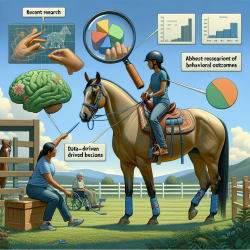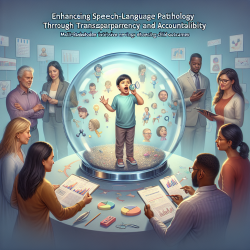Introduction
In the realm of special education, understanding the diverse factors influencing adolescent well-being is crucial. A recent study titled After the bell: adolescents’ organised leisure-time activities and well-being in the context of social and socioeconomic inequalities provides valuable insights into how organized leisure-time activities (OLTAs) can enhance adolescents' well-being, irrespective of their socioeconomic backgrounds. This blog aims to guide practitioners in integrating these findings into their practice to foster better outcomes for students.
The Importance of Organised Leisure-Time Activities
Organized leisure-time activities play a pivotal role in adolescent development. They offer structured environments where young individuals can explore interests, develop skills, and build social networks. The study highlights that participation in OLTAs is associated with improved life satisfaction, fewer psychological complaints, and better self-rated health among adolescents.
Practitioners should consider advocating for and facilitating access to a variety of OLTAs, such as sports, arts, and youth organizations, especially for students from lower socioeconomic backgrounds. This can help bridge the gap in well-being and provide equitable opportunities for all students.
Key Findings and Implications for Practice
- Broad Participation: Adolescents engaged in multiple OLTAs reported higher well-being. Practitioners should encourage students to explore a range of activities to maximize benefits.
- Impact of Socioeconomic Status: The study found that adolescents from lower socioeconomic backgrounds participated less in OLTAs. Practitioners should work to identify barriers and collaborate with community organizations to increase accessibility.
- Family Structure: Adolescents from non-nuclear families participated less in OLTAs. Tailored interventions that consider family dynamics could enhance participation rates.
Strategies for Implementation
Practitioners can adopt several strategies to implement these findings effectively:
- Community Partnerships: Collaborate with local organizations to provide diverse OLTA options and ensure they are accessible to all students.
- Parental Engagement: Educate parents about the benefits of OLTAs and involve them in the process of selecting suitable activities for their children.
- Customized Programs: Develop programs that cater to the interests and needs of students from various backgrounds, ensuring inclusivity and engagement.
Encouraging Further Research
While the study provides a comprehensive overview, further research is needed to explore the long-term impacts of OLTA participation on adolescent well-being. Practitioners are encouraged to conduct localized studies to better understand the specific needs of their student populations and adapt interventions accordingly.
Conclusion
By integrating the insights from the study on OLTAs, practitioners can play a significant role in enhancing the well-being of adolescents. Through strategic implementation and collaboration, educators can create supportive environments that promote holistic development for all students.
To read the original research paper, please follow this link: After the bell: adolescents’ organised leisure-time activities and well-being in the context of social and socioeconomic inequalities.










